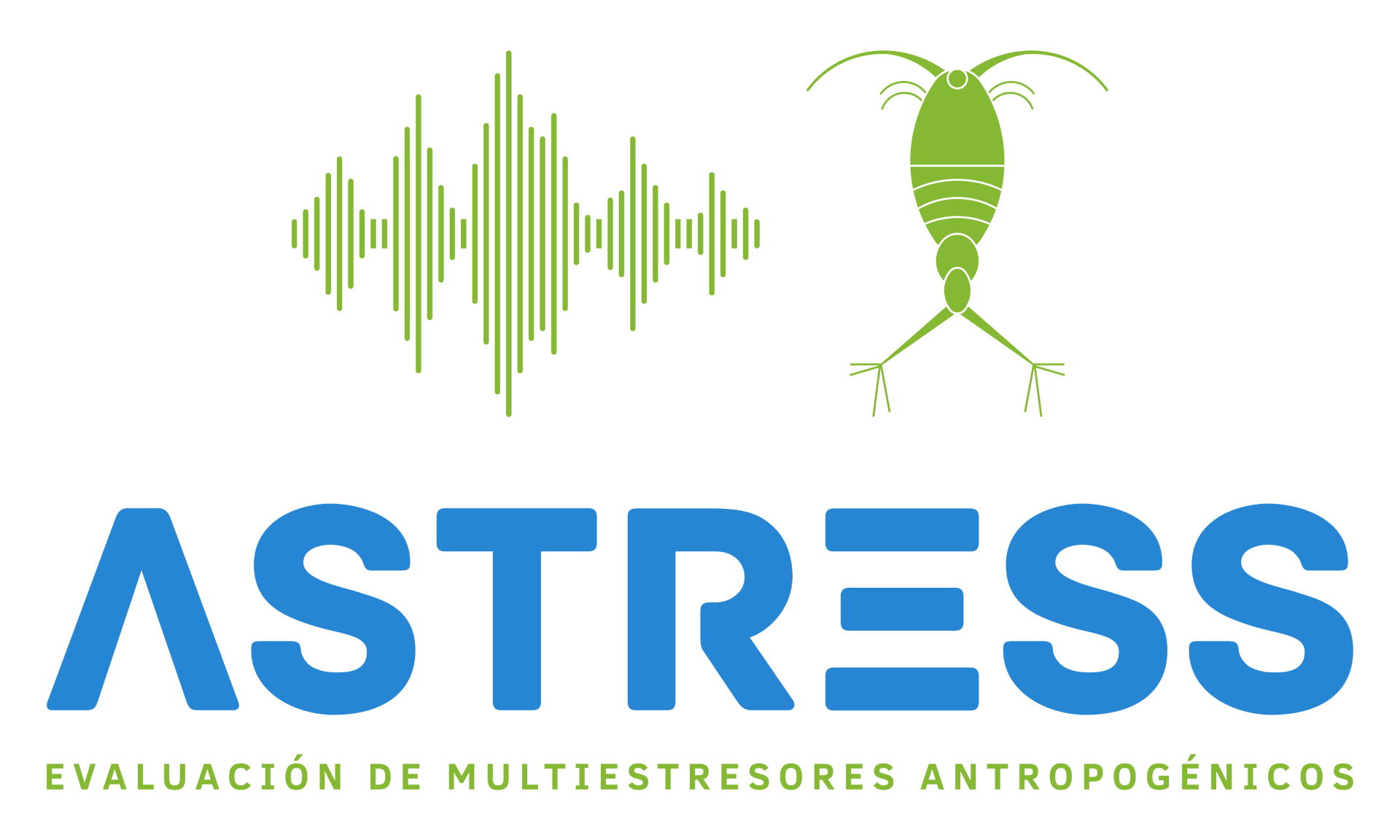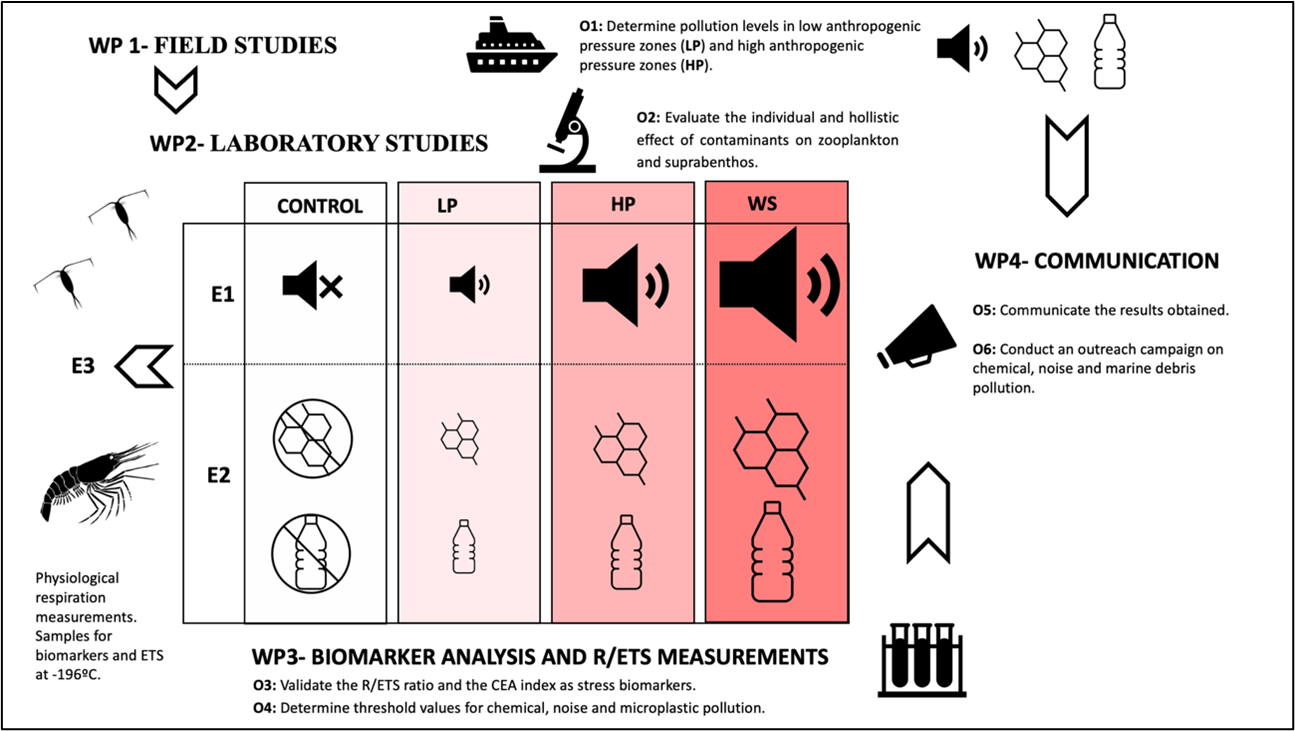
.png)
ABOUT ASTRESS
The project 'Assessment of anthropogenic multistressors in zooplankton and suprabenthos' (ASTRESS), focuses on determining the synergistic effects of underwater noise, microplastics and chemical pollutants on the physiology of these marine organisms in the Canary Islands. Thus, the aim is to define the threshold values of these anthropogenic stressors for zooplankton and suprabenthos, organisms that are at the base of the marine trophic chain; therefore, assessing the possible anthropogenic impacts is essential to know the welfare of marine ecosystems and to propose different mitigation actions.
This project, which will last 15 months, is essential for the advancement of sustainability and protection of marine ecosystems in the Canary Islands and is aligned with the strategic objectives of the Smart Specialization Strategy (RIS-3) of the Canary Islands 2021-2027.
Project objectives
The ASTRESS project focuses on achieving the following objectives:
- Determine noise levels and abundance of microplastics with associated chemical contaminants in areas with low and high anthropogenic pressure.
- Evaluate the individual and joint effect of noise pollution and microplastics with chemical contaminants on zooplankton and suprabenthos physiology using biomarkers.
- Validate the R/ETS ratio (respiration and potential respiration by electron transport system activity) and CEA index (catalytic enzyme activity) as biomarkers of stress in zooplankton and suprabenthos.
- Determine threshold values of noise and microplastic pollution for zooplankton and suprabenthos.
- Communicate the results obtained to the scientific community and the general public.
- To carry out an outreach campaign on the problem of chemical, noise and marine debris pollution in the oceans.

The project is led by the research group of Ecophysiology of Marine Organisms (EOMAR), belonging to the University Institute for Research in Sustainable Aquaculture and Marine Ecosystems (ECOAQUA) of the University of Las Palmas de Gran Canaria (ULPGC).
Researchers involved
In addition to Dr. Alicia Herrera Ulibarri, principal investigator of the project, the EOMAR group includes Dr. May Gómez Cabrera, Dr. Ted Packard, Dr. Álvaro Torres and Dr. Ico Martínez, together with the PhD student Alberto Navarro.
Other institutions involved in the project are the University of La Laguna (ULL), with Dr. Patricia Arranz, from the BIOECOMAC group; and the Aalborg University (AAU), in Denmark, through Dr. Alvise Vianello and Dr. Laura Simón.
.

The University Institute ECOAQUA is a research centre that belongs to the University of Las Palmas de Gran Canaria, a public institution that offers a wide range of degrees in all the major areas of knowledge, with the aim of providing comprehensive training to those who come to it, in a commitment based on innovation, quality and internationalisation.


